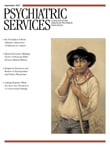Declaring that a particular work is the definitive book on a given subject is always risky. Most fields change rapidly, and there are constantly new things to learn or, at the very least, new ways to integrate old ideas. That said, Onno van der Hart, Ellert R. S. Nijenhuis and Kathy Steele have come as close as I can imagine to writing the definitive book on trauma, dissociation, and the complicated treatment of these disorders. Their book, The Haunted Self, is an elegant integration of theory, research, and clinical practice about the struggles endured by survivors of complex and repeated trauma.
The authors propose a phase-specific understanding of the treatment of trauma survivors that respects the splits in the personality caused by traumatic events. An "apparently normal part of the personality" holds narrative memory and attempts to go on with daily life, using the ego functions of planning, exploring, and reasoning. At the same time, at least one and often several "emotional parts of the personality" remain stuck in an action pattern that was initiated at the time of trauma and was principally defensive in nature. The goal of treatment is a resolution of these structural splits in the personality and a more whole and flexibly functioning individual.
The authors combine this basic understanding of structural splits with an appreciation of the various action patterns used by the individual and the energy level and energy efficiency required to integrate parts of the personality. Although their theoretical reasoning is complex, it brings together biological, psychological, and social understandings of the individual in a way that makes both intuitive and intellectual sense.
When the authors turn specifically to treatment in the last part of their book, they wisely combine general clinical perspectives with very practical suggestions that flow from their understanding of phase-specific needs. For example, there are several specific suggestions for how to handle extra and urgent phone calls from trauma survivors that respect the individual's struggles with attachment and the loss of attachment. All three authors are experienced clinicians and their suggestions reveal that their theoretical constructions are well grounded in direct practice.
This book is not easy. It is dense and rich in material, and the ideas it tackles are complex. After reading the book, I attempted to share some of the most exciting ideas with a group of young clinicians who were learning to implement the trauma recovery and empowerment model for working with survivors (
1 ). Most of them listened dutifully, but were somewhat confounded by the ideas, confirming my suspicion that
The Haunted Self will be best appreciated by clinicians more familiar with trauma theory and practice. On the other hand, I shared some basic ideas in a psychoeducationally based, skills-focused trauma group with inner-city, trauma survivors with dual diagnoses, none of whom had completed more schooling than high school, and they got it immediately. The ideas of structural dissociation—complicated for beginning clinicians—made immediate sense to women with lived experience of trauma, confirming my belief that the authors could not be more right in what they have to teach us.

